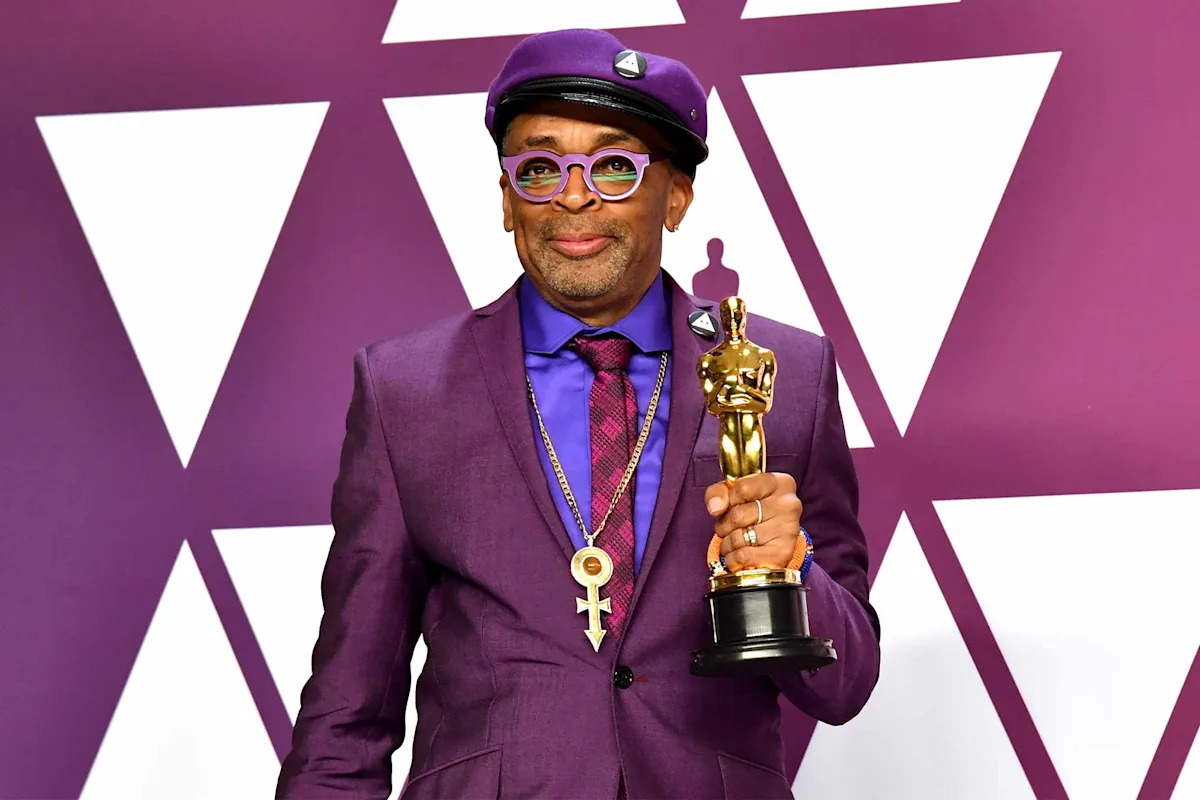Spike Lee recently provided an amusing moment during his appearance on Marc Maron’s WTF podcast, where he humorously forgot the name of the film that beat his own BlacKkKlansman at the 2019 Academy Awards. This incident highlights not only Lee’s candid personality but also reignites discussions around the film that won Best Picture that year: Green Book.
The Oscar Rivalry: BlacKkKlansman vs. Green Book
In 2019, BlacKkKlansman, which chronicles the true story of Ron Stallworth, the first Black detective in the Colorado Springs Police Department, was nominated for six Academy Awards, including Best Picture and Best Adapted Screenplay. It presented a compelling narrative that tackled serious themes related to racism and identity, making it a favorite among many critics and audiences.
Conversely, Green Book, directed by Peter Farrelly, follows the journey of a Black pianist, Dr. Don Shirley (played by Mahershala Ali), and his Italian-American driver, Tony Vallelonga (Viggo Mortensen), as they navigate the racially charged American South in the early 1960s. Although Green Book also received praise and secured three Oscars, it was met with significant backlash over its portrayal of race relations, with critics labeling it as a reinforcement of the white savior narrative and a simplification of complex issues surrounding racism.
Spike Lee’s Reaction
In his interaction with Maron, Lee reflected on past awards and lost opportunities, noting the historical context of his own films in the Academy. He referenced his 1989 film Do the Right Thing, which faced a similar snub regarding nominations when Driving Miss Daisy ultimately took home the award for Best Picture. Expressing his thoughts with humor, Lee remarked, “Every time somebody is driving somebody, I lose!” This running joke highlights the visibility issues faced by Black filmmakers in the industry and the complexities surrounding representation.
At the time of the 2019 Oscars, Lee made his disappointment with Green Book‘s victory clear. He outright defined it as a “bad call” and, during a red carpet interview, cleverly suggested that the film “wasn’t my cup of tea.” His remarks have since become part of the discourse surrounding these films and the Academy’s problematic choices over the years.
Forgetting the Rival
Lee’s inability to recall Green Book‘s name during the podcast episode serves not only as a comedic moment but also as a poignant reflection on how awards and recognition can fade in significance over time. “I understand now that Oscars don’t necessarily mean that’s the best thing,” Lee told Maron, emphasizing his focus on creative integrity rather than accolades. This sentiment resonates deeply within the film community, where the worth of art is often debated.
Lee’s humor about the oversight indicates a level of detachment from the competitive nature of the Oscars. Instead, he sees his work as part of a broader conversation about race, history, and the cultural narratives that cinema can evoke. His attitude espouses a sense of resilience that is commendable, echoing the sentiments of many artists who feel misrecognized by mainstream institutions.
Broader Implications
This narrative around Lee’s forgetfulness invites further examination of the Academy Awards and the films they champion. Green Book‘s recognition came at a time of heightened awareness about systemic racism, yet it sparked conversations about the portrayal of African Americans in Hollywood. This moves the discussion beyond Lee’s opinion and into a larger societal critique of how narratives are constructed and represented on-screen.
In an industry replete with complexities regarding diversity and recognition, Lee’s comments illuminate the essential need for nuanced storytelling. A film that can address deeper societal issues without leaning into simplified tropes often garners a more lasting impact on audiences.
Conclusion
Forgetfulness may diminish the memory of a particular film, but the implications of its narratives can linger long after the Oscar dust settles. Spike Lee’s moment on the podcast serves as a reminder that the world of cinema is continually evolving and that even prominent filmmakers can momentarily forget the intricacies of their industry’s history. However, the lessons learned through these narratives will undoubtedly pave the way for future storytellers and audiences alike.
In the end, Lee’s jocular moment and his deep understanding of cinema’s role in society contribute to an ongoing discussion about how we value stories, the creators behind them, and the voices they represent. As artists, both Lee and his contemporaries persist in challenging the status quo, pushing for change and advocating for more inclusive views in film—one breath at a time.










